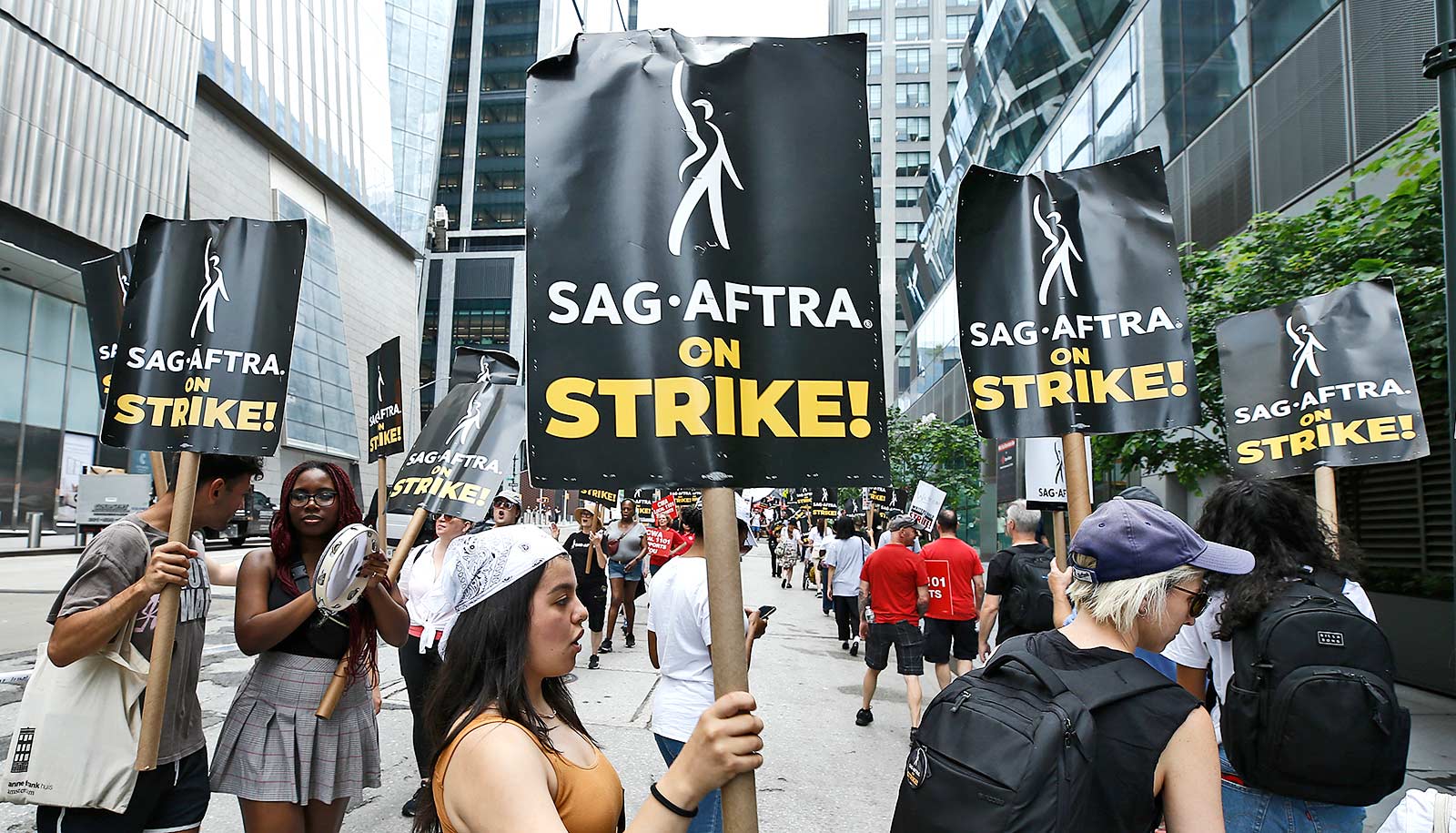Newman: One of the big problems in negotiating these deals is people don’t know what is going to exist in the future, so they don’t know what to negotiate. The standard movie contracts were always, you know, “theater, television, and any device not yet invented by mankind.”
Burgess: For the 2007 writers’ strike, one of the biggest sticking points was DVD residuals. That was one of the hardest issues for them to come together on, and it ended up being the least big deal. So that just goes to show that nobody has a crystal ball. It’s very hard to write a contract that will protect people from unknown innovations, and the exploitation that might come with those innovations.
Newman: The biggest problem of this, I believe, is because of the streaming wars, and the huge losses that the legacy studios have absorbed. Netflix is not an entertainment company. It’s a tech company. If this was strictly a negotiation between the studios and the networks and the deal, it would be solved. But Netflix and to a certain extent, Hulu and whatever remains of the studio streaming services have no desire to. They spent too much money. They wanted quantity over quality. They’re actually comfortable sitting it out right now and not spending money. When they come back, unfortunately I think one of the effects is going to be far, far fewer shows, and higher prices for film tickets and streaming subscriptions for consumers.
Brandon J. Dirden: I was in one of the first original Netflix series, The Get Down. In those days we didn’t know if it was a viable concept, streaming. So we actors were taking a chance along with Netflix. So we worked at a reduced residual structure than we were previously accustomed to. But that was 10 years ago. Now there’s so much secrecy involved and we don’t know what a fair deal is. We need a concrete plan of how this is going to be sustainable. What is the structure going to look like where we can actually support ourselves?
Joseph Vinciguerra: This is the part of why we’re not necessarily going to come to an agreement anytime soon. Artists are now dealing with tech companies that see the world through algorithms of efficiency. And the companies have run into the world of creativity and so we’re having a kind of philosophical difference over what is commerce and what is art? Is the world of entertainment commerce, or is it art?
Burgess: What the writers are asking for is the number of weeks and the number of collaborators they need to make movies and television that people will love. Bean counters on Wall Street are saying, “I’ll give you the bare minimum number of people and hours to make a thing that might turn a profit,” even if it’s not as good as what it could be. Studio executives are worried about their financial quarter, but the writers are worried about and trying to take care of the art form.
Author Profile
- "Center" Bias Rating
- Futurity is a nonprofit website that aggregates news articles about scientific research conducted at prominent universities in the United States, the United Kingdom, Canada, Europe, Asia, and Australia. It is hosted and edited by the University of Rochester.
Latest entries
 ScienceSeptember 19, 2024Deadly snail venom could make diabetes medicines better
ScienceSeptember 19, 2024Deadly snail venom could make diabetes medicines better ScienceSeptember 18, 2024Breast milk antibodies protect against rotavirus
ScienceSeptember 18, 2024Breast milk antibodies protect against rotavirus ScienceSeptember 18, 2024Low levels of 1 mineral can make IBD worse
ScienceSeptember 18, 2024Low levels of 1 mineral can make IBD worse ScienceSeptember 17, 2024Nanoparticles deliver drugs to kill cancer cells in mice
ScienceSeptember 17, 2024Nanoparticles deliver drugs to kill cancer cells in mice

